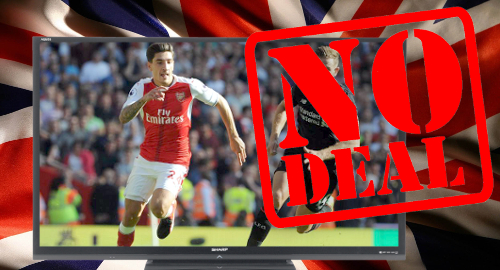 UK-facing gambling companies haven’t yet agreed to a complete ban on advertising during live sports broadcasts, despite media reports claiming that such an agreement has been reached.
UK-facing gambling companies haven’t yet agreed to a complete ban on advertising during live sports broadcasts, despite media reports claiming that such an agreement has been reached.
On Thursday, the BBC reported that Remote Gambling Association (RGA) members, including many industry heavyweights, had agreed to a self-imposed “whistle-to-whistle” ban on advertising their betting services during live sports broadcasts.
Last month, the RGA’s board of directors met to discuss imposing new voluntary curbs on television advertising, but RGA CEO Clive Hawkswood told iGaming Business that “the BBC have got it wrong. There is no agreement on any proposals yet, let alone an announcement.”
Trouble is, the BBC report was picked up by multiple mainstream media outlets in the UK, prompting a mild panic among gambling investors. As this is being written, shares in William Hill are down 3.6%, GVC Holdings is off 4.5%, Playtech is down 3% and Paddy Power Betfair has fallen 2%. Major UK broadcasters’ shares are also feeling the downward pressure.
Assuming for the moment that there is some fire behind the BBC’s smoke, the report claimed that horseracing would be exempted from this new advertising code due to gambling being racing’s sole reason for existing. Whatever is agreed upon must be approved by the Industry Group for Responsible Gambling, and isn’t likely to be imposed until sometime in the new year.
As proof that anti-gambling campaigners really won’t be satisfied until the industry is completely hobbled, a spokesperson for the Campaign for Fairer Gambling — which led the fight to slash fixed-odds betting terminal stakes — told the Beeb that any new promotional rules “should also include shirt and league sponsorship and digital advertising around a pitch.” The spokesperson added that if the rumored advertising ban is justified, “then the other things are as well.”
While TV advertising may seem to be the dominant form of promoting gambling activity, a recent GambleAware report revealed that four-fifths of all gambling marketing takes place online, while just 15% of industry spending went to TV.